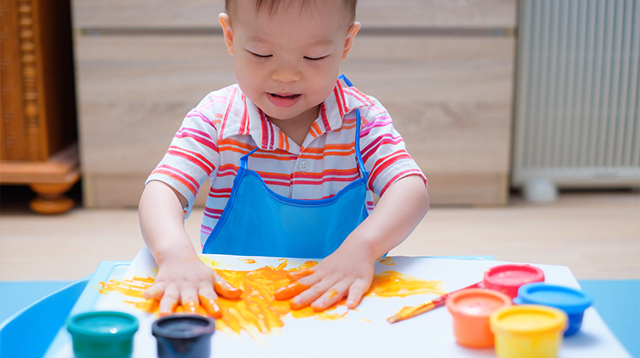Dear Parents, We Have to Stop Complaining and Stressing About the Mess Our Kids Make
Children and mess go hand in hand. It’s actually beneficial for their growth and development. Read to find out how and why.
Parents of toddlers know by now that when it comes to young children, making a mess is inevitable. At this stage, they’re all about exploring and trying to make sense of the world around them. They are engaging their senses — touching, smelling, even tasting items! But, as parents love their children’s curiosity and sense of adventure, they cannot help but think of the mess they need to clean afterward.
It’s a situation even preschool teachers are familiar with. Deborah Stewart, a private preschool educator, shares that while she expects children to make a big mess — planning for it “mentally, emotionally, physically, and even financially” — the weeks of squeezing paint haphazardly or cutting infinite strips of paper can get to her.
“I am no longer quite as tolerant of the glue or paint squeezing frenzy. If I see paper piled up all over the floor, I feel my anxiety start to go up. So, what do I do? I start lecturing the children because I feel frustrated,” she writes in her blog Teach Preschool. She’ll tell them using too much glue is a waste. She’ll point out their mistakes and offer to do the work for them.
“If I see the children not regulating their use of materials like I think they should, I start putting things out of reach or restricting the children’s access to the materials,” she explains. “My focus has changed from ‘helping the children to self-regulate’ to ‘being the class regulator’ just to avoid the mess.”
The chaos to you improves their motor skills.
Paper, paint, clay, crayons, and pens get kids excited and inspire them to use their little hands and finger muscles to create new things. These are the same muscles that they’ll use for writing, buttoning up clothes, and self-feeding.
When they play outside, they’ll be running around and making use of their legs, arms, back, and shoulders — all helpful for physical development and improving their balance, endurance, strength, coordination, and other motor skills.
The mess can help them think and inspire them to be creative.
Giving them more freedom to explore means fueling their curiosity. “What happens when I open this can of paint? What happens when I mix colors?” They’ll start asking questions and discover how things work. They’ll also be able to use their imagination to create anything they want. More often than not, things will get messy and dirty, but they will learn while having fun.
They learn to become independent.
Letting your kid figure out what he wants to do means you are giving him the chance to have his own ideas. If he’s playing alone, he learns that he can have fun on his own and he won’t get bored when he’s by himself! “He can trust and rely on his own ability to do things,” says Heidi Murkoff, author of the What to Expect When You’re Expectingseries.
“[They won’t be] dependent on you to keep them busy all day,” adds Deborah.
With all the organizing and decluttering hacks that you see on your feed, seeing your own house in disarray can be exasperating. But if that mess sparks joy in your children and also means they are learning, wouldn’t it be worth it?
Original Article from Smart Parenting

